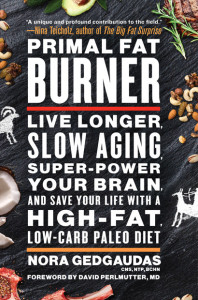The ideas and suggestions written by Nora Gedgaudas are provided as general educational information only and should not be construed as medical advice or care. All matters regarding your health require supervision by a personal physician or other appropriate health professional familiar with your current health status.
Always consult your qualified personal health care provider before making any dietary or exercise changes. Nora Gedgaudas and Nora Gedgaudas, LLC/Northwest Neurofeedback, Inc. disclaims any liability or warranties of any kind arising directly or indirectly from use of this material. If any medical problems develop, always consult your qualified personal health care provider. Only your physician can provide you medical advice.
Throughout this program are links/references to external sites. These external sites contain information created and maintained by other individuals and organizations and are provided for the user’s convenience. Nora Gedgaudas and Nora Gedgaudas, LLC/Northwest Neurofeedback, Inc. do not control nor can they guarantee the accuracy, relevance, timeliness, or completeness of this information. Neither is it intended to endorse any view expressed nor reflect its importance by inclusion in any material in Nora’s books, websites or programs.
THE CAUTION PART…
Although millions of people have been able to transition to a very low carbohydrate diet without documented harm, there are some for whom a low-carb diet must be approached with some caution.
If you are taking medication to control your blood sugar or blood pressure, you may need to quickly reduce the dosage and may need to discontinue these meds altogether if you significantly restrict your carbohydrate intake. This is best done under the supervision of a doctor.
Although the diet advocated in my books, Primal Body, Primal Mind, Rethinking Fatigue and Primal Fat Burner stresses the consumption of only moderate levels of protein and is not a “high protein diet”, for anyone who has serious kidney disease, any increase in dietary protein can be a problem. If you have kidney disease you should consult your doctor before making any changes to your diet.
If you have compromised biliary health, gallbladder attacks or gallstones you should exercise extreme caution where increasing dietary fat is concerned and you may first need to resolve this issue with your trusted, licensed health care provider before embarking on any major dietary change.
Anyone who has any other serious illness such as unstable cardiovascular disease, cancer or liver disease needs to exercise caution if making dietary changes. You should consult your physician for guidance.
Finally, if you are pregnant or lactating you should not overly restrict protein (or fat) intake. Also, young children and teens have much more demanding nutrient needs and should not have their protein or fat intake overly restricted. There is still no dietary carbohydrate (sugar or starch) requirement for human beings at any age but know that radical changes to your existing diet if you are pregnant–other than eliminating junk foods–may not be advisable and should be approached only under the guidance of a qualified and knowledgeable health care professional.


